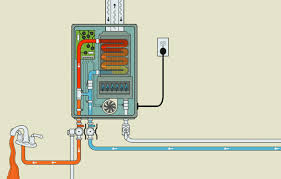


The cold weather is here, and with it comes the "ugly cold" that can throw a wrench in your plans. At Crossville Heating and Cooling, we know how important it is to stay warm and comfortable at home when the temperatures drop. Here’s how to keep your home cozy and avoid the worst of winter's chill.
Key Takeaways
Quick Tips for Cold Weather Prep
The ugly cold can catch you off guard, but with a few steps, you can ensure your home stays warm:
When to Call a Pro
Sometimes the cold weather can reveal bigger problems, such as a malfunctioning heater or broken pipes. If you notice uneven heating or strange noises from your furnace, it’s time to call the experts. Our team is ready to diagnose and fix any issues to keep your home comfortable and safe.
Prevention Tips for Winter-Ready Homes
Preventative care is key to avoiding the worst of the ugly cold:
24/7 Service for Peace of Mind
Whether it's a sudden furnace failure or a frozen pipe emergency, Crossville Heating and Cooling is here to help. With 24/7 service, you’ll never have to worry about the ugly cold taking over your home.
Conclusion
The ugly cold is inevitable, but with the right preparation and maintenance, you can stay warm and comfortable all season long. If you need professional help, the fastest in town since 1982 is just a call away. Contact us today for expert heating services to keep your home running smoothly!

Home heating systems come in three main types. These are forced-air furnaces, hydronic systems with boilers and radiators, and heat pumps.
Common causes include refrigerant leaks or low refrigerant levels, frozen or dirty coils, airflow issues, drainage problems, electrical faults, compressor failure, and fan motor issues.
Homeowners should set up HVAC maintenance twice a year. It's best to do this in the spring and fall. This keeps the system running well and saves energy.
Furnaces are easy to maintain and can work with air conditioning systems. But, they can be risky, causing fires, explosions, and carbon monoxide poisoning. They also might spread allergens in your home.
An AC system works by moving refrigerant between indoor and outdoor units. It absorbs heat from inside and sends it outside. Knowing how the refrigeration cycle and heat transfer work helps fix cooling problems.
HVAC maintenance is a service that keeps your heating, ventilation, and air conditioning systems in top shape. It includes checking and maintaining all parts of the HVAC system. This keeps your system efficient.
Boiler and radiator systems heat water or steam in a central boiler. This heated liquid moves through pipes to radiators or heaters in your home. They offer control over different areas and don't spread allergens. Yet, they need a separate system for cooling.
Signs include the AC running all the time but not cooling the house, warm air coming from vents, and the outdoor unit feeling cool. You might also see frost or ice on the coils.
During maintenance, technicians check and service key parts like air filters, coils, refrigerant levels, and electrical connections. This ensures everything works right.
Heat pumps come in air-source, geothermal, and water-source types. They use electricity and refrigerant to move heat from air, water, or ground into your home. They also cool your home.
First, make sure the thermostat is set to "cool" and the temperature is lower than inside. Check the circuit breakers for both units are on and haven't tripped.
How often you need HVAC maintenance depends on the system's age and the local climate. Newer systems usually need maintenance once a year. Older systems might need it more often.
Radiant heating systems heat your home evenly and quietly. They're more efficient than other methods and don't spread allergens. But, they cost more upfront and might need new flooring during setup.
Blocked air filters or vents can stop proper airflow. This stops the heat transfer and makes the cold air go outside instead of in.
Schedule HVAC maintenance before you really need it, which is usually in spring and fall. This helps the system work better when you need it most.
Wood-burning systems like stoves use renewable fuel. But, they can be hard to heat your home evenly and are a fire risk if not installed right. Newer pellet stoves are cleaner and more efficient than old wood stoves.
Without enough refrigerant, the AC can't cool the air well. A leak or low levels can freeze the coils and send cold air outside.
Regular maintenance makes your HVAC system more reliable. It helps spot problems early and works more efficiently. This can save you money on energy bills.
Active solar heating uses solar energy to heat liquids or air. This heat is then moved into your home or saved for later. It's good for the environment but costs more upfront and needs a backup system.
Frozen coils block airflow and stop heat transfer, sending cold air outside. Dirty coils also stop the heat from being released, making the AC struggle to cool the air.
Clean around the outdoor unit and check the coils and cabinet for damage before the technician comes. Also, inspect the ductwork for leaks.
Hybrid heating combines an electric heat pump with a gas furnace. This mix saves energy and works well. The heat pump takes care of mild weather, and the furnace helps in very cold weather.
A blocked condensate drain can make the system freeze or shut down. This sends cold air outside instead of inside.
Choose HVAC companies with certified technicians, like those with NATE certification. They should also have a good history of quality service and happy customers.

.jpg)
.jpg)
.jpg)
.jpg)







